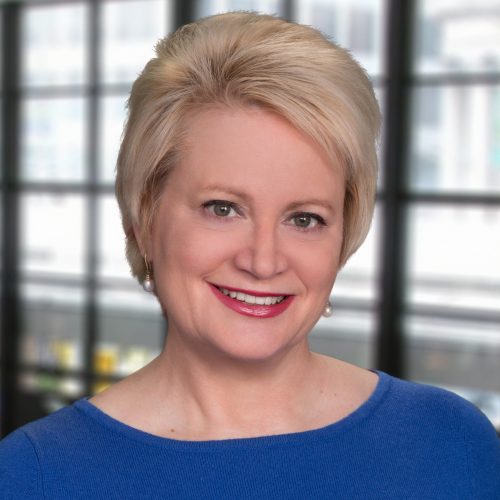Susan Dentzer

Senior Policy Adviser to the Robert Wood Johnson Foundation, Journalist
Topic Categories:
- Susan Dentzer is one of the nation’s most respected health and health policy thought leaders.
- She is a Senior Policy Fellow at the Duke-Margolis Center for Health Policy.
- She is also the editor and lead author of the book Health Care Without Walls: A Roadmap for Reinventing U.S. Health Care.
- Dentzer previously served as President and Chief Executive Officer of NEHI, the Network for Excellence in Health Innovation; was senior policy adviser to the Robert Wood Johnson Foundation
*Fee ranges are presented as a guideline only. Speaker fees are subject to change without notice. For an exact quote, please contact your Speaker Exchange Agency representative.
Susan Dentzer is one of the nation’s most respected health and health policy thought leaders and a frequent speaker and commentator on television and radio, including PBS and NPR, and an author of commentaries in Modern Healthcare, the New England Journal of Medicine and other prominent publications. She is a Senior Policy Fellow at the Duke-Margolis Center for Health Policy, the Washington, DC-based arm of Duke, where she focuses on health system transformation, biopharmaceutical policy, and other key health policy issues. She is also the editor and lead author of the book Health Care Without Walls: A Roadmap for Reinventing U.S. Health Care.
Dentzer previously served as President and Chief Executive Officer of NEHI, the Network for Excellence in Health Innovation; was senior policy adviser to the Robert Wood Johnson Foundation; editor-in-chief of the journal Health Affairs; and on-air Health Correspondent for the PBS NewsHour. She is an elected member of the National Academy of Medicine and the Council on Foreign Relations and is a fellow of the National Academy of Social Insurance and the Hastings Center. She is a member of the Boards of Directors of the International Rescue Committee; Research!America; and the Public Health Institute. She also serves on the RAND Health Board of Advisors and the global public policy advisory committee for Roche.
Dentzer graduated from Dartmouth, is a trustee emerita of the college, and chaired the Dartmouth Board of Trustees from 2001 to 2004. Dentzer holds an honorary master’s degree from Dartmouth and an honorary doctorate in humane letters from Muskingum University. She and her husband, Charles Alston, have three adult children.
With the 2020 national elections approaching, Democratic candidates are proposing a range of health reforms aimed at providing universal health insurance coverage. Some would build on and extend the reforms inherent in the Affordable Care Act; others would go further to create a single-payer system and abolish private health insurance. There are also a variety of competing reforms in between. In her presentation, Dentzer can describe the origins of “Medicare for All” in longstanding calls for national health insurance; delineate the specific “Medicare for All” and related proposals; discuss the implications for hospitals, health systems, insurers, and individuals; and weigh the political prospects of all of these reforms. She can also provide an update on Trump administration initiatives, and on litigation over the Affordable Care Act that could affect the political and health reform landscapes.
The presentation is based on the book of the same name published on Amazon.com. Dentzer was the editor and lead author.
Blurbs about the book:
“We finally have a roadmap to fix the U.S. health care system. Health Care Without Walls is a must-read for everyone in health care and for anybody who believes there has to be a better way to care for individuals and communities.” – David T. Feinberg, MD, MBA, Google; former President and Chief Executive Officer, Geisinger Health System
“Drawing on deep research and real examples from around the country and around the world, this study provides a blueprint for how care can and should be delivered in the future. Let’s make it a reality.” – Ian Morrison, author, consultant and health care futurist
“Health Care Without Walls describes an exciting future state to which the U.S. health care system clearly needs to evolve.” – Robert M. Wachter, MD, author of The Digital Doctor; chair, Department of Medicine, University of California San Francisco School of Medicine
Presentation description: “Imagine a health care system that came to you — a system that met you, as an individual, where you are, in your home, workplace, or community, in part through such ‘virtual care’ modalities as telehealth. Such a system would anticipate your needs and work to keep you as healthy as possible and view any of your needs to access “sick care” as a possible sign that the system had let you down. This system would address the upstream drivers of your health status, and yet be as convenient and accessible as other elements of your life that you now take for granted, like ordering online. Such a system could be called ‘Health Care Without Walls.’
Susan Dentzer can describe current trends and examples moving us toward the vision of Health Care Without Walls, and the public policy changes and private sector measures also necessary to achieve it. Although there will be many benefits in achieving a far more distributed system of care outside of conventional institutional settings, such as hospitals, physicians’ offices, and nursing homes, a number of payment/reimbursement, regulatory, workforce, and human factors issues must be addressed before such a system can be realized. Dentzer can describe the need for a “21st Century Hill Burton” program to assist many of the nation’s hospitals in transforming into new roles. In particular, Dentzer can discuss the many implications for the nation’s health care workforce; education and training of health care professionals; and in particular, interprofessional education and training to deliver the team-based, virtually enabled care that will increasingly be the norm. She can offer examples of organizations that are engaging in such efforts, and describe the opportunities that may emerge for research and other partnerships to advance the field.
“Health Care Without Walls: Implications for Primary Care” was the subject of a recent webinar that Susan led for the Patient-Centered Primary Care Collaborative.
Dentzer has a version of the Health Care Without Walls presentation specifically geared to the oncology community and the needs of cancer patients.
With the 2020 national elections approaching, Democratic candidates are proposing a range of health reforms aimed at providing universal health insurance coverage. Some would build on and extend the reforms inherent in the Affordable Care Act; others would go further to create a single-payer system and abolish private health insurance. There are also a variety of competing reforms in between. In her presentation, Dentzer can describe the origins of “Medicare for All” in longstanding calls for national health insurance; delineate the specific “Medicare for All” and related proposals; discuss the implications for hospitals, health systems, insurers, and individuals; and weigh the political prospects of all of these reforms. She can also provide an update on Trump administration initiatives, and on litigation over the Affordable Care Act that could affect the political and health reform landscapes.
The presentation is based on the book of the same name.
Blurbs about the book:
“We finally have a roadmap to fix the U.S. health care system. Health Care Without Walls is a must-read for everyone in health care and for anybody who believes there has to be a better way to care for individuals and communities.” – David T. Feinberg, MD, MBA, Google; former President and Chief Executive Officer, Geisinger Health System
“Drawing on deep research and real examples from around the country and around the world, this study provides a blueprint for how care can and should be delivered in the future. Let’s make it a reality.” – Ian Morrison, author, consultant and health care futurist
“Health Care Without Walls describes an exciting future state to which the U.S. health care system clearly needs to evolve.” – Robert M. Wachter, MD, author of The Digital Doctor; chair, Department of Medicine, University of California San Francisco School of Medicine
Presentation description: “Imagine a health care system that came to you — a system that met you, as an individual, where you are, in your home, workplace, or community, in part through such ‘virtual care’ modalities as telehealth. Such a system would anticipate your needs and work to keep you as healthy as possible, and view any of your needs to access “sick care” as a possible sign that the system had let you down. This system would address the upstream drivers of your health status, and yet be as convenient and accessible as other elements of your life that you now take for granted, like ordering online. Such a system could be called ‘Health Care Without Walls.’
Susan Dentzer can describe current trends and examples moving us toward the vision of Health Care Without Walls, and the public policy changes and private sector measures also necessary to achieve it. Although there will be many benefits in achieving a far more distributed system of care outside of conventional institutional settings, such as hospitals, physicians’ offices, and nursing homes, a number of payment/reimbursement, regulatory, workforce, and human factors issues must be addressed before such a system can be realized. Dentzer can describe the need for a “21st Century Hill Burton” program to assist many of the nation’s hospitals in transforming into new roles. In particular, Dentzer can discuss the many implications for the nation’s health care workforce; education and training of health care professionals; and in particular, interprofessional education and training to deliver the team-based, virtually enabled care that will increasingly be the norm. She can offer examples of organizations that are engaging in such efforts, and describe the opportunities that may emerge for research and other partnerships to advance the field.
As the world reaps the fruits of genomics advances, advanced treatments for many conditions, such as cancer, are becoming available, but they are only contributing to a cost spiral that has already put affordable health coverage out of the reach of many Americans. And in the meantime, growing national health expenditures continue to pose a challenge not just to individuals’ pocketbooks, but to state treasuries, the federal government, and taxpayers. Health expenditures are crowding out spending on other critical areas such as education – leading to a vicious cycle that will probably deprive many Americans in the coming years of optimal health.
What is to be done? How can the United States improve the health of its population; address the health crises afflicting so many; spread or equalize access to the best health care available; and maintain expenditures on health care within sustainable bounds? Achieving all of these outcomes may seem impossible, but there are important steps that the nation can take to get us on the right road. Susan Dentzer will describe the issues and options available to us as a nation.
• Health care politics and policy: Where is the nation in 2019? Where are we headed?
• Prescription drugs: Weighing innovation against prices, value, and affordability
• Revamping payment in U.S. Health Care: Are we succeeding? What are the results?
• Transparency in Health Care Costs
• Addressing the Social Determinants of Health: Communities that are leading the way
• Hospitals and health systems as “Anchor Institutions” advancing health in their communities
• A “21st Century Hill-Burton” plan: How to transform hospitals and health systems to advance health in communities
Want to bring Susan Dentzer to your next event? Please tell us a little about your event, and we will get back to you shortly!




